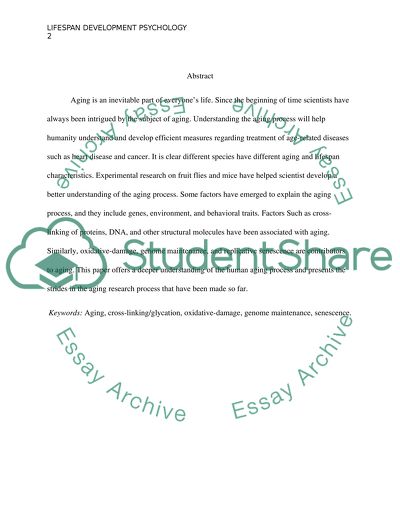Cite this document
(“Biological and psychological aging Research Paper”, n.d.)
Retrieved from https://studentshare.org/psychology/1701993-lifespan
Retrieved from https://studentshare.org/psychology/1701993-lifespan
(Biological and Psychological Aging Research Paper)
https://studentshare.org/psychology/1701993-lifespan.
https://studentshare.org/psychology/1701993-lifespan.
“Biological and Psychological Aging Research Paper”, n.d. https://studentshare.org/psychology/1701993-lifespan.


